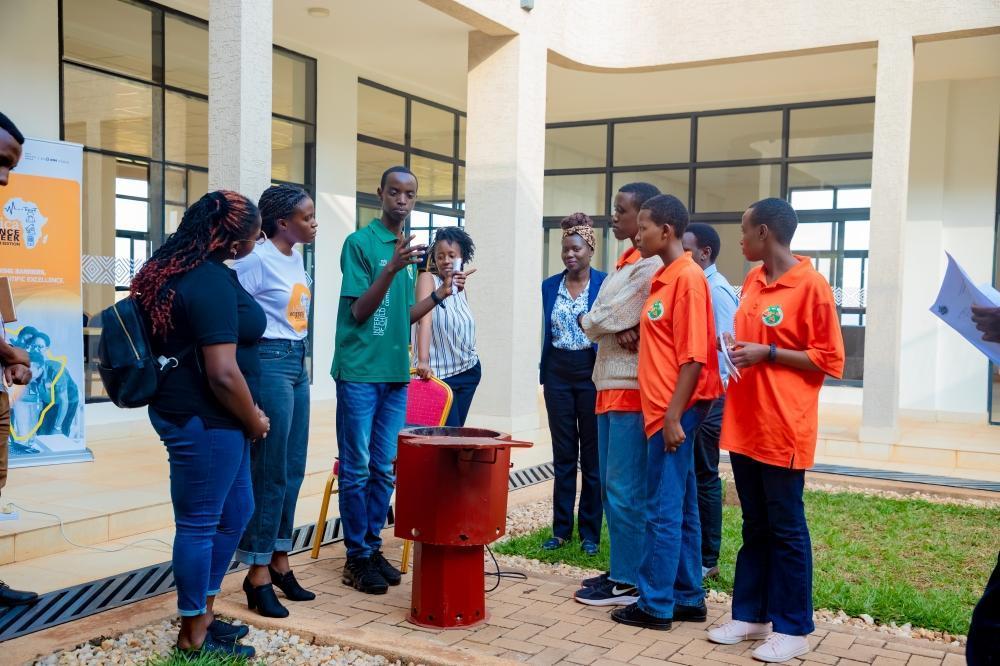Africa Science Week 2025 Celebrates Youth in STEM Education

Engaging the Next Generation of African Scientists
Students from high school to PhD level gathered at AIMS Rwanda in Kigali on August 18 for Africa Science Week 2025. Over four days, participants engaged in hands-on training in coding, data analysis, innovation, and science communication. The program aimed to emphasize practical applications of Science, Technology, Engineering, and Mathematics (STEM) skills in fields such as medicine and software development, highlighting how science education can drive real-world problem-solving across disciplines.
Fostering Inclusivity and Knowledge Exchange
Prof. Sam Yala, President of AIMS Rwanda, highlighted that the event provided an opportunity for participants to showcase African innovation and build platforms for knowledge exchange. Participants came from diverse academic backgrounds, including medicine, and the workshop was intentionally designed to be inclusive. Dr. Lema Lugamu-Seknuna, a trainer from AIMS Research and Innovation Centre, who also led a Python programming workshop during Africa Science Week, emphasized the importance of inclusivity. “This is why the participants were from diverse backgrounds. It doesn’t matter whether you’re from a mathematical background or not. What matters is where the data comes from and whether you have the knowledge to process it and create a product,” he said.
Real-World Applications of Coding
Student feedback from the event revealed the impact of the training. Jeanette Niyomugabo, a fifth-year medical student, was one of the participants in the Python programming workshop. Initially uncertain about whether coding had any place in her field, she decided to apply out of curiosity and a willingness to try something new. “I came here expecting to learn basic coding skills, and when I saw the immediate results of the commands I gave to Python, it gave me confidence that this is something I can learn and use, because it is practical,” she said. She explained how programming could help her track patient data and improve daily tasks in a hospital setting. “Instead of writing everything manually, I can give Python a command and it gives me the results. That’s real-life problem-solving.”
Expanding Skills and Confidence
Walter Nkusi, a high school student studying software development at APADE in Bugesera, described the four-day training as both eye-opening and productive. Before attending, he had only a surface-level understanding of Python, but the sessions deepened his skills and gave him confidence to apply them in his academic work. “These four days have been insightful. I learned about Python, and now I can’t wait to start using it in my studies and research.”
Emphasizing the Importance of Data Analysis
The event also underscored the growing importance of data analysis in various sectors. Experts highlighted the need to embrace tech-led data analysis, which can empower policymakers and professionals alike. This focus on data-driven decision-making aligns with broader efforts to integrate technology into everyday practices, making it more accessible and impactful for all.
Encouraging Future Innovators
Africa Science Week 2025 served as a platform for students to explore their potential and gain practical skills that can be applied in their respective fields. By fostering an environment of learning and collaboration, the event encouraged participants to think critically and creatively about how science can solve real-world problems. The inclusion of diverse participants ensured that the benefits of scientific education reached a wide audience, promoting a culture of innovation and knowledge sharing.
Looking Ahead
As the participants returned to their academic and professional environments, they carried with them not only new skills but also a renewed sense of purpose. The experience of Africa Science Week 2025 has the potential to inspire future generations of scientists, engineers, and innovators across the continent. By emphasizing practical applications and inclusivity, the event set a strong foundation for continued growth and development in STEM fields.

Comments
Post a Comment